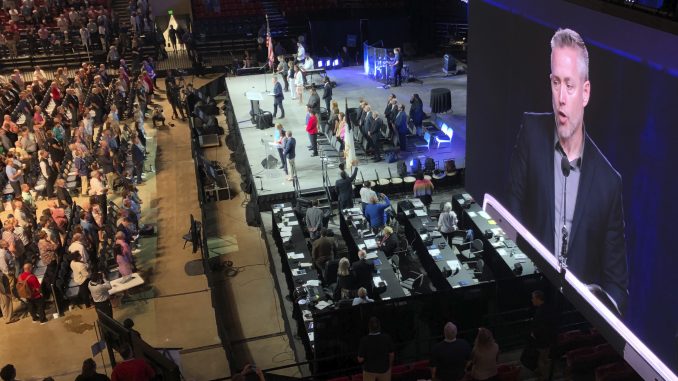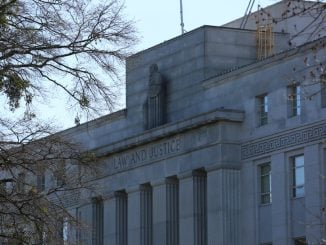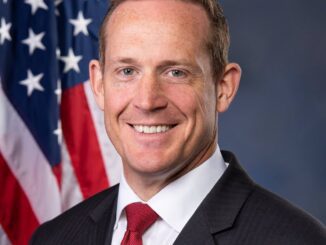
RALEIGH — After a series of high-profile sex abuse revelations in 2018 and 2019, church leaders of the Southern Baptist Convention met in Dallas, Texas, last week to confront the issue. The event, billed as the “Caring Well Conference,” took place over the Oct. 4-6 weekend and was organized by the Ethics & Religious Liberty Commission, the public policy arm of the SBC.
Despite already approving legislation on abuse during their 2019 annual convention, the amendments cannot go into effect until they are affirmed again at 2020’s convention in Orlando, Florida. Rather than wait another year, SBC leaders decided to hold this conference in Dallas to begin the process of addressing abuse in the church.
J.D. Greear, the pastor of Summit Church in Durham and current SBC president, rose to his role in 2018 as the scandal was beginning to gain headlines. It has defined his time in leadership as he’s looked for ways to heal the country’s second-largest denomination.
The major initiative that Greear and the SBC presented at the weekend conference is called the “Caring Well Challenge,” which the SBC hopes will give member churches some tools as they wait to vote on more concrete measures in 2020. The SBC also created a website and a video of Greear describing the program.
In the video, Greear says, “It’s a free initiative designed to walk with church leaders, step by step, towards becoming a church that is safe for survivors and safe from abuse. The ‘Caring Well Challenge’ provides your church a pathway to start engaging the problem of abuse, whatever your background. I want to encourage your church to commit to taking the eight-step challenge over the next year.”
Because the denomination is much less centralized, compared to the more hierarchical Catholic or Episcopal churches, the challenge is being presented as a voluntary program that pastors can opt into.
In his opening remarks at the Dallas conference, Greear began with an apology to sex abuse victims, saying, “I cannot speak for every Southern Baptist in America, but I can speak for myself and say that I’m sorry — truly sorry. As a pastor and as a dad, I’m sorry.”
Greear’s speech focused on seven myths of sex abuse that he says have been hindering progress on the issue within the SBC. As with the Catholic Church, many loyal members initially saw the scandals as being overblown by an anti-Christian popular culture and media. For this reason, his first “myth” was that “Sexual abuse in the church is not really a problem but simply the latest leftist attack on the church.”
Greear asked attendees to put aside perceived attacks on conservatives and instead focus on their own church, where abuse has been uncovered.
To show how deep this scandal reaches into the church, the conference invited well-known ministers who themselves have been affected to speak. Kay Warren, an author and co-founder of Saddleback Church and wife of Rick Warren, who wrote the bestselling “Purpose Driven Life,” spoke about being abused at church as a child, as did popular Bible-study leader Beth Moore.
North Carolina voices did not stop with Greear. Boz Tchividjian, whose grandfather Billy Graham based his world-famous evangelism ministry out of Montreat in the western part of the state, spoke of his own experience both as a prosecutor and as the leader of GRACE, an organization that fights sexual abuse in Christian churches and ministries.
“I think the SBC must go through a season of substantive lament, learning and changes if it ever wants to become a genuine leader in preventing and addressing all forms of abuse,” said Tchividjian. “I want to remain hopeful for change, but time will be the true test.”
Some activists and abuse survivors remain skeptical of the SBC’s commitment to a tough anti-abuse approach and are urging swifter action to create a database listing credibly accused abusers that could be shared among the SBC’s 47,000 member churches.
By contrast, Megan Lively of Wilson, North Carolina, says she’s been solidly supported by SBC leaders since identifying herself as a key figure in a 2003 sexual-assault incident that contributed to last year’s ouster of the Rev. Paige Patterson as president of Southwestern Baptist Theological Seminary in Wake Forest.
Patterson was faulted for discouraging Lively from filing a report with police after she told school administrators she’d been raped by a fellow student while attending Southeastern Baptist Theological Seminary. Patterson was president of the school at the time.
Lively, one of the scheduled speakers at the conference, says she doesn’t consider herself just a “safe option” for the organizers.
“I know that SBC leaders have listened to women inside and outside the church,” she said. “For over a year, I’ve been telling them things, making suggestions. They have listened to me.”
Added Lively, “For me, it’s more important to stay involved in the process from within than to demand change from the outside.”
Sex abuse already was a high-profile issue at the SBC’s 2018 national meeting, after which Greear formed an advisory group to draft recommendations on how to confront the problem.
Pressure on the SBC intensified in recent months, however, due in part to articles by the Houston Chronicle and San Antonio Express-News asserting that hundreds of Southern Baptist clergy and staff have been accused of sexual misconduct over the past 20 years, including dozens who returned to church duties, while leaving more than 700 victims with little in the way of justice or apologies.
In 2018, the Southern Baptist Convention had more than 47,000 churches and a reported membership of 14.8 million, down about 192,000 from the previous year.
The Associated Press contributed to this article.


